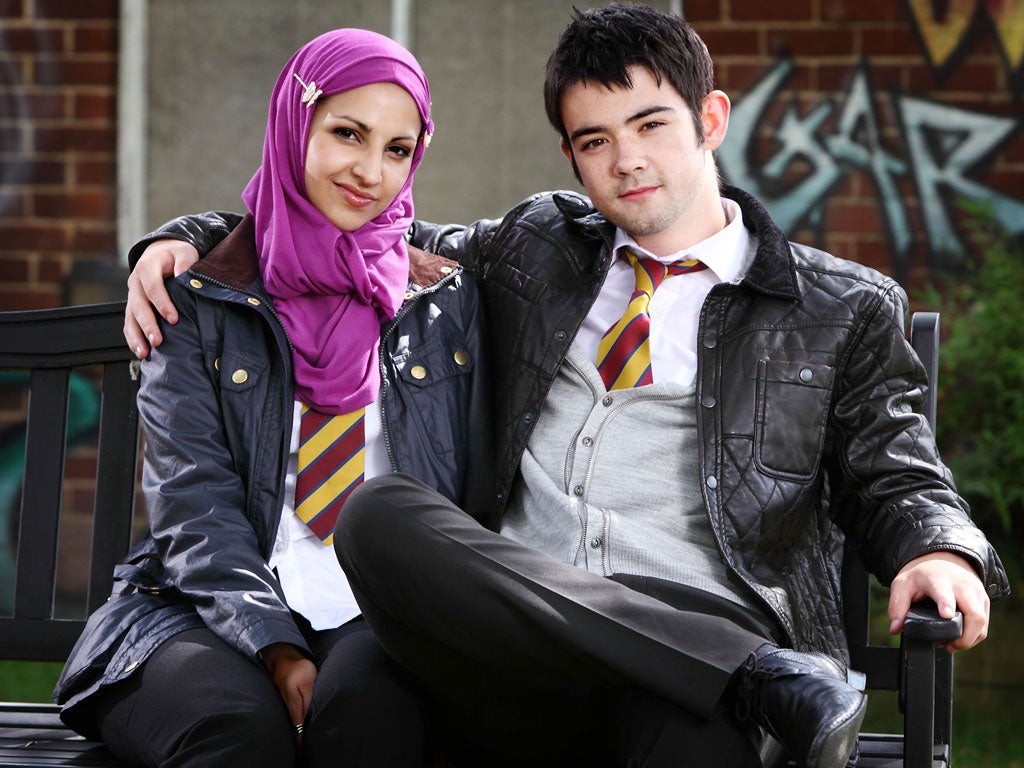Think outside the M25, actors tell television drama bosses
Equity wants to make the industry spend moreof its money across the UK

Your support helps us to tell the story
From reproductive rights to climate change to Big Tech, The Independent is on the ground when the story is developing. Whether it's investigating the financials of Elon Musk's pro-Trump PAC or producing our latest documentary, 'The A Word', which shines a light on the American women fighting for reproductive rights, we know how important it is to parse out the facts from the messaging.
At such a critical moment in US history, we need reporters on the ground. Your donation allows us to keep sending journalists to speak to both sides of the story.
The Independent is trusted by Americans across the entire political spectrum. And unlike many other quality news outlets, we choose not to lock Americans out of our reporting and analysis with paywalls. We believe quality journalism should be available to everyone, paid for by those who can afford it.
Your support makes all the difference.Actors are lobbying broadcasters to end their London bias and increase the number of programmes made in Scotland, Wales and Northern Ireland. At present, fewer than 8 per cent of all spending by public service channels goes to productions made in these areas.
In May, the actors' trade union Equity is launching a campaign for channels to increase the proportion of television shows made outside England. Actors are also concerned that when shows are made in these nations, cast and crew are often shipped in from elsewhere. "One of the issues our people have is quite often the programme is badged 'BBC Northern Ireland', 'BBC Scotland' or 'BBC Wales' but in reality there are few – if any – opportunities for performers in the nations to appear in them," said Stephen Spence, assistant general secretary at Equity, who is organising the Broadcasting in the Nations campaign. "Our people feel if it's a BBC Scotland badge, it should be made in Scotland and have Scottish performers, not exclusively, but they should have an opportunity to be in it."
According to Ofcom, 61.8 per cent of spending by public service broadcasting channels in 2010 went to productions made within the M25. Productions in Scotland received 4.6 per cent of spending, Wales 2.6 per cent and Northern Ireland 0.4 per cent. "Everything has been a bit London-centric for a long time," said Michael Mackenzie, who played the pathologist Dr Magnus Baird in the ITV detective show Taggart. "There's a perception among the media elite you can't be any good as a performer, or someone who works in this business, unless you go to London... Why shouldn't Scottish performers and crew be able to make a living in their own country?"
Fellow Scot Elaine C Smith, who plays the wife of Rab C Nesbitt in the sitcom of the same name, also called for more dramas to be made and cast away from London. "Say you live in Leeds, and you have written this drama about Bradford, but all your commissioning editors went to the same public schools and live in the same area of London," she told The Stage, the actors' newspaper. "Their frames of reference are not going to see it, and therein lies the problem."
Performers admit there has been an improvement: the BBC has moved its hit school soap Waterloo Road from Manchester to Glasgow. Its new Roath Lock drama village in Cardiff – home to shows including Casualty, Doctor Who and Upstairs Downstairs – officially opens this week. But double Bafta Cymru winner Eiry Thomas said: "They seem to be bringing a lot of people in rather than using what is already here."
The BBC has a target of spending 17 per cent of its programme-making budget in the nations by 2016. In 2010, it achieved 13.2 per cent. A spokesman said drama for main networks was aimed at all audiences, not just those where it was made, but that the broadcaster was "committed to improving portrayal of those living in the nations" and bringing on new acting talent from across the UK.
In 2010, 4.5 per cent of Channel 4 productions were made in the nations, exceeding its 3 per cent quota.
Additional reporting by Sarah Trotter
Join our commenting forum
Join thought-provoking conversations, follow other Independent readers and see their replies
Comments